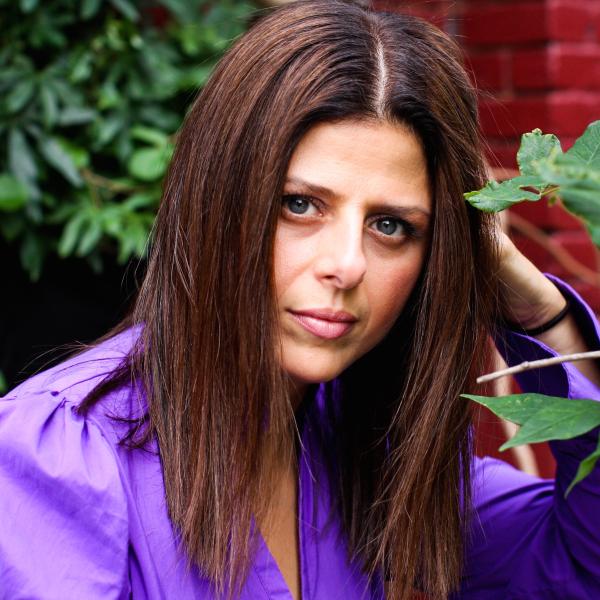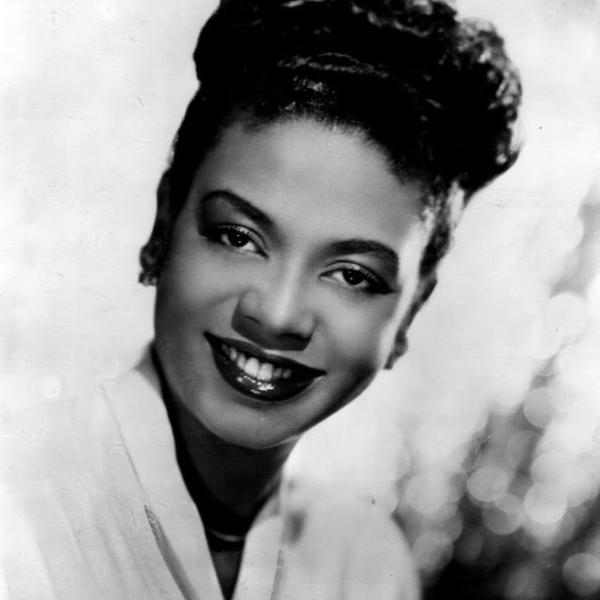From the Archives: Art Talk with Joy Ladin
Until a few weeks ago, I never fully understood what it must feel like to be born the wrong gender. The difficulty and the pain—yes, that part I understood. But I never quite grasped what it must feel like on a visceral, cellular level to feel that your body was a stranger’s, and that your identity wasn’t actually your own.
That is the beauty of Joy Ladin’s memoir, Through the Door of Life: A Jewish Journey Between Genders. One of the NEA’s newest literature fellows, Ladin—born Jay—captures the transgender experience in such crushing detail that not only does the reader fully comprehend Ladin’s ordeal, but they realize that they too have felt the very same foreignness, even if under different circumstances.
Through the Door of Life also traces the unraveling of Ladin’s marriage, the shifting relationships with her children, and her perhaps unusual relationship with Judaism given her situation: Although forced to take an “involuntary research leave” from her tenured teaching post at Yeshiva University, an Orthodox school in New York City, Ladin’s transition from male-to-female only strengthened her Jewish beliefs and identity. (She has since been allowed to return to Yeshiva.) A poet, scholar, teacher, and lecturer, Ladin recently spoke with us about her journey as a writer and as a woman.
NEA: In the last decade or so, you’ve had many relationships change: with yourself, with your family, with colleagues, etc. I’m wondering if you’ve seen your relationship with writing change as well?
JOY LADIN: I think actually the biggest change in my writing process had to do not with gender transition, but with having children. When you have babies and small children, it can be impossible to block out chunks of time and say, "Alright, now for this four hours, or eight hours, I'm going to do nothing but write." Instead, you find yourself writing in little scraps of time whenever it's possible. I wrote part of my dissertation while holding my second child who had colic. So she was howling, and I was writing about modernist poetics.
What my kids taught me is that I needed to be really flexible as a writer, that living as a writer was not about having some kind of absolute control over my life or my time. If I was going to do it, I was going to have to work in little bits and pieces, which all of the writing workshops and craft lectures and everything I'd ever heard about being a writer said was the opposite of what living as a writer should mean.
NEA: Was there a therapeutic element at all to writing through The Door of Life?
LADIN: Yes. I was ordered to start writing autobiographically by my therapist, who I think had several different motivations. One was that she suspected correctly that while I was writing, I wouldn't be able to kill myself. Another was that she found me unusually articulate about the moment-by-moment details of trans experience. That partly came from being a writer, and part of it came from growing up knowing that I was trans. It's very common for trans kids and trans people to live on a kind of phenomenological gerbil wheel, where we're always looking at how we feel and questioning how we feel. Am I really who I think I am? Wait a second, did my sense of gender identity just disappear? What does it mean that I feel this way? What does it mean that I feel that way? So there's this kind of constant maddening pressure to examine oneself and reflect on one's feelings. Combining that with being a writer and a poet, and somebody who had studied social science, all of those things came together. So I think she saw me as somebody who was talking about experiences that are hard to talk about in ways that might be useful.
I don't know if she had this in mind or not, but once I started to do this, I discovered another benefit, which is writing in the past tense, writing reflectively, enabled me to pretend that I was writing as somebody who knew what I was talking about. That I was somebody who already was the person that I was struggling to become, and that I'd survived the things that seemed to be overwhelming me. The voice of that past tense could put experiences that were ripping me apart into clauses and sentences, and balance conflicting perspectives of my need to be myself and my family's need for me to continue living as a man. All of that was really, in a way, my first experience of becoming the person that I needed to be. So I kind of wrote myself into existence.
NEA: As a writer, publication can be extraordinarily validating—you kind of feel like you’ve “made it.” But I’m wondering if the publication of Through the Door of Life was validating in a different sense as well?
LADIN: I've seen myself as a poet from the time that I was a child, and I'd been struggling to get published from the time I was 21. So I'd gone through a lot of cycles of despair and affirmation. I remember the first time I got an acceptance for a poem, I thought a limo was going to drive up and cameras would be at the door. It was rather heartbreaking to realize that when the magazine came, it was something that even I would never pick up if I saw it in a bookstore.
So I'd gone through a lot of maturation in terms of what publication and rejection meant for me. But Through the Door of Life also went through its own cycle of rejection. It was rejected by agents who had asked to see it; it was rejected by agents who represented LGBTQ writers; it was rejected by presses. One of the things that was really discouraging about it was that over and over again, people were saying, "We like the way this is written, but there are too many trans memoirs already." Which is a pretty awful thing to say. I can't imagine anybody saying there are too many memoirs by Jews, or memoirs by African Americans, or by golly, do we really need another memoir by a man? I don't even know how many they meant—there's only been one bestselling memoir. But the assumption was, and I think it's still an assumption that's out there, is that if you've read one transgender story, you've read them all.
So when it was finally accepted by an agent, it didn't feel like some kind of great affirmation as much as desperation. What felt more like affirmation are the talks I've been able to do that have grown out of it. I've gotten many e-mails that have told me that people have seen important aspects of their lives reflected in the book. And when I was writing it, I was trying to write my way from what Jane Bowles calls "my first fear toward my first hope." So my first fear growing up and hiding as a trans person was that I was really and utterly unlike every other human being. Maybe I wasn't even human. And if I told the truth about myself, people would just see me as something completely different, completely monstrous. My first hope was if I told the truth about myself, other people would say, "You're human, and in your story, we can recognize parts of our own story." That is the affirmation that I've felt from the individual responses I've gotten. Not so much the professional affirmation as a writer, but a profound, life-changing affirmation as a person.
NEA: Can you walk me through your creative process?
LADIN: I've tried different stuff at different times, partly because my circumstances have been different. I'm pretty disciplined. I bang away at things to meet deadlines, and that's part of the practice of writing while parenting. I think my ideal process is to let myself waste a lot of time writing things that I have every reason to believe may feel good at the time, but will be revealed in a day or two as utterly crap, and not worry about it. I love writing; I love the feeling of writing. It's a thrill. It's the adult equivalent of the way three-year-olds feel when they fingerpaint. So to me, that is the heart of my creative process, when it's going well, and that's directly in conflict with the disciplined try-to-get-this-done aspect of the creative process.
NEA: Could you tell me about how your relationship with God and Judaism influence your process and your writing?
LADIN: My family was not literary in any way, shape, or form. As far as I know, there was literally no poetry in the house when I was growing up other than maybe Dr. Seuss and nursery rhymes. But I always wanted to write poetry and it always felt very important to me to do it. I think that the only examples of poetic language, and maybe the only examples of language that I knew mattered intensely even though it had no practical effect, was the language that I found in the Torah and in prayer books. The more I learned about Judaism, the more I learned about the importance of words and the belief of the power of language. But [writing and Judaism] have always been tangled together for me in ways that I guess don't really make much sense. I recently was talking about my growth as a transgender poet, and I couldn't talk about it without talking about being Jewish. They were both ways of being different that I thought about all the time when I was writing. What would I reveal, what wouldn't I reveal, what differences would connect me with others and what would isolate me. What parts of myself could I translate and what couldn't I translate.
NEA: If you read your entire body of work at once, how do you think you would see yourself growing and changing as an artist?
LADIN: When I read my first book of poetry, I actually remember -- it took years -- and I remember the choices and I see all of the glitches and I remember deciding to live with them. But I also remember that complicated juggling of what do I reveal about myself and what do I conceal. So one of the big storylines in my work was how do you write poems that are true when you can't tell the truth about yourself? To me, it was a fabulous discovery when I stumbled on some of the Eastern European poets who'd made it into translation in the late 70s and early 80. People who were writing under a Communist regime that would prosecute them for openly saying things developed these fabulous techniques of depersonalization. They transformed the actual feeling that they had about their lives into ontological premises. And that's what I wanted to do. So there's a lot of hiding and displacement. It took me 20 years to finish that first book, because I think it's really hard to write poems that are true without revealing the truth. Well, it was hard for me anyway.
NEA: Do you feel freer now as a poet?
LADIN: I do. When I first started living as myself, it was stunning to realize that I was free of those pressures. That I COULD tell the truth about myself. Then I realized I had two new problems. One is, I have to figure out what the truth is; the other is I need to figure out what the self is. I had been playing hooky from the 101 class that every American poet goes through of writing the personal poem. I didn't really know how to write poems where I said "I" and I meant "I." So that took a long time to figure out. Now I've finally gotten to the point that a lot of other American poets get to decades sooner, which is, “Boy, do I have to keep writing about myself? Can't I write about something interesting?"




